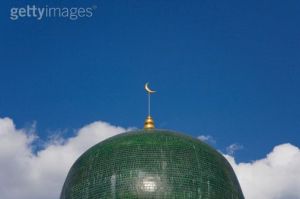YES WE CAN TOO
 Tonight, sitting snowbound in front of the TV, I watched the persistent and passionate protest of the Egyptian people. One woman held up a sign which read “Yes We Can Too.” It caught me off guard. Not too long ago, the slogan “Yes We Can” helped to elect the first African-American president of the United States. For a short and wonderful time, the world applauded and was reminded of the promise that was once pervasive, that here was a land of opportunity where anything was possible. With a decade of unpopular and devastating choices in the global arena over the last decade and a recently unleashed financial crisis, we had chosen idealism and hope. Yet fear and impatience, and the politics of blame quickly snuffed out the change that many of us had voted for. Or has it?
Tonight, sitting snowbound in front of the TV, I watched the persistent and passionate protest of the Egyptian people. One woman held up a sign which read “Yes We Can Too.” It caught me off guard. Not too long ago, the slogan “Yes We Can” helped to elect the first African-American president of the United States. For a short and wonderful time, the world applauded and was reminded of the promise that was once pervasive, that here was a land of opportunity where anything was possible. With a decade of unpopular and devastating choices in the global arena over the last decade and a recently unleashed financial crisis, we had chosen idealism and hope. Yet fear and impatience, and the politics of blame quickly snuffed out the change that many of us had voted for. Or has it?
There is no way to underestimate the bravery, determination, and passion of the Egyptian people over the last week. When I read that protester’s sign, I was reminded of recently read quote of theologian Reinhold Niebuhr, “Nothing that is worth doing can be achieved in a lifetime; therefore we must be saved by hope.” It demonstrated to me that an authentic message of hope that has real substance and that resonates with the deeper part of our universal human nature, may be temporarily extinguished in one area, only to reignite in another. Egyptians too are campaigning for change and while not looking for any help (or interference) by us, can be encouraged by the power of these words.
 It is my prayer that the citizens of Egypt will realize a free and democratic system for themselves and their children. They have suffered too long under an ineffective and unjust regime that favors the few and provides little or no opportunities for the majority.
It is my prayer that the citizens of Egypt will realize a free and democratic system for themselves and their children. They have suffered too long under an ineffective and unjust regime that favors the few and provides little or no opportunities for the majority.
Ironically too, the social networking mechanism that has helped win elections, is also fueling the movements in Egypt and Tunisia. I hope not only their ongoing commitments reminds us of how blessed we are to have the freedom and liberty of free speech and assembly. Equally important, it shows the Western world that Muslims too are seeking a better life for themselves and their families, to put bread on the table, and have a voice in their government. It is a much-needed counterpoint to the daily sound bytes of Islamic terrorists and radicals.
May it be a peaceful transformation and be a shining example to other nations still ignoring the will of the people.


